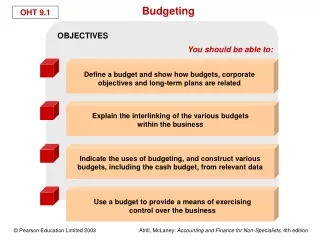Accounting Rate of Return and Internal Rate of Return.
www.answersheets.in info.answersheets@gmail.com info@answersheets.in 91 95030-94040 Finance Management Note : Attempt any four questions. All questions carry equal marks. 1.(a) How does an accountant follow the principle "anticipate no profit, provide for all losses" ? On which accounting concept is this based ? Explain it and discuss its significance. (b) Distinguish between Financial Accounting and Management Accounting. What is the most important role of a Management Accountant in a business organisation ? Discuss. 2.(a) Distinguish between revenue expenditure and Capital expenditure. How are they treated while preparing the final accounts ? If by mistake the accountant of a firm treats a capital expenditure as revenue expenditure, how will it affect the final accounts of the' firm ? Give an example. (b) Why is depreciation charged ? Explain the two methods of charging depreciation. In which method the value of the asset is reduced to zero earlier ? Which one is more rational ? Explain why ? 3. "Financial Leverage is one of the important considerations in planning the capital structure of a company." Explain this statement giving an example. Briefly describe the other factors which are also considered while planning the Capital structure. 4. Distinguish between : (a)Profit maximisation and Wealth maximisation goals. (b)Accounting Rate of Return and Internal Rate of Return. (c)Operating Cash flows and Financial cash flows. (d)Direct Labour Rate Variance and Direct Labour Efficiency Variance. 5. Explain fully the following statements : (a)"Break - even Analysis is not without limitations". (b)"Lenders prefer high interest coverage ratio but a low debt-equity ratio". (c)"Weighted average cost of capital would always be higher, if market value weights are used." (d)Zero - based budgeting is a better alternative to traditional method of budgeting. 6.(a) "Sales Budget forms the basis on which all other budgets are built ." Explain. What factors are taken into consideration while preparing the sales budget ? Discuss. (b) What is Rolling Budget ? How does it differ from flexible Budget ? What purposes do these budgets serve ? Explain. www.answersheets.in info.answersheets@gmail.com info@answersheets.in 91 95030-94040
★
★
★
★
★
79 views • 6 slides













